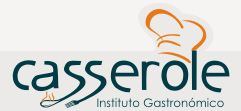.jpg)
This type of on-going trauma is generally referred to as Complex PTSD or C-PTSD. Many Adult Children are constantly on the alert, surveying our environment - whether we are doing it consciously or unconsciously. The full list of characteristics can be found in the Laundry List, the 14 common traits of adult children, which was written by the ACA founder Tony A. Children too can become traumatized by being trapped in a world that is frightening them.
.jpg)
Most of the day, you tend to push these traumatic memories from your childhood aside.
People and systems that are there to protect you instead become something you fear. Parental alcohol addiction increases a child’s risk of sexual and physical abuse. According to one study, 85% of reported child abuse cases involve alcohol.2 Child neglect is also common.
ACoAs all too often become addicts themselves, engaged in a compulsive relationship with alcohol, drugs, food, sex, work or money as a form of mood management. Part of getting and staying sober involves facing childhood pain so that it doesn’t remain unresolved and inwardly active, which could trigger relapse (van der Kolk, 1987). The limbic system can become deregulated as a result of repeated toxic stressors.
.jpg)
Mental Health Issues
When you don’t learn how to regulate your emotions, you might find it more difficult to understand what you’re feeling and why, not to mention maintain control over your responses and reactions. Difficulty expressing and regulating emotions can affect your overall well-being and contribute to challenges in your personal relationships. A 2012 study that considered 359 adult children of parents with AUD found that they tended to fall within five distinct personality subtypes. One of these types, termed Awkward/Inhibited by researchers, was characterized by feelings of inadequacy and powerlessness. Watching someone we love slowly become someone we cannot make sense of can shake us to the core. Family members may twist or distort their own reasoning to make this destabilizing experience easier to manage or less “real,” by essentially denying reality.
- Part of getting and staying sober involves facing childhood pain so that it doesn’t remain unresolved and inwardly active, which could trigger relapse (van der Kolk, 1987).
- We import past, unresolved pain into present-day relationships, but without much awareness as to how or why.
- As a result, Peifer says you could have difficulty accepting love, nurturing, and care from partners, friends, or others later in life.
- That’s why we have a comprehensive set of treatment providers and don't charge for inclusion.
- Small children may come up with fantastical, magical solutions that are the product of their immature minds.
- Sherry Gaba, LCSW, is a licensed psychotherapist/author specializing in addictions, codependency, and underlying issues such as depression, trauma, and anxiety.
Simple and Complex Post-Traumatic Stress Disorder (cPTSD)
- When left untreated, these issues can continue well into adulthood.
- According to White, this may happen partly because children often learn to mirror the characteristics of their parents.
- And especially when you’re young, the only parts of your life in your control are often your performance in school or extracurriculars.
- Others find groups and individual therapy with a trauma therapist to be the best blend.
- For the family that is in denial about the progressive illness of addiction in its midst, telling the truth can be ostracizing.
- Even if you don’t have a diagnosed mental health condition, the trauma of your childhood can affect you in many ways.
Often, meeting with a therapist for adult children of alcoholics can help you understand symptoms of complex post-traumatic stress disorder. At Wisdom Within Counseling, holistic, creative, somatic therapies support positive coping tools. Commonly, adult children of alcoholics experience feelings of shame or guilt. It is common to feel like it was your fault for the way your parents behaved.
Adult Children of Alcoholics: Healing from the Childhood Trauma of Addiction
Your therapist can help you determine a therapy approach that best fits your unique needs and concerns. Having a parent with AUD doesn’t automatically mean you’ll develop the condition yourself. That said, you are four times more likely to develop it than someone who doesn’t have a parent with AUD. Knowing you couldn’t count on your caregiver for emotional support could also diminish your sense of self-esteem, according to Amanda E. White, licensed professional counselor and founder of the Therapy for Women Center. People who have felt traumatized may alternate between anxious clinging and taking refuge in avoiding connections with other people.
You’re torn between letting it feel wonderful (which it does) and not letting it feel too good, because you know from experience that if it feels too good it will only hurt more when he slips away again. Then sure enough, you sense tension creeping in, you observe moments fraying around the edges, situations devolving and unraveling before your eyes, and you know that it’s coming. The gap between the worlds that had temporarily closed up begins to widen, and your addict disappears into some crevice, some wormhole in the universe, and he is gone as mysteriously as he came. You see the disappointment on the faces around you; you see the confusion, the humiliation and the hurt.
Underlying Unhappiness? Working With A Therapist For Adult Children Of Alcoholics Can Help
Growing up with a parent addicted to alcohol can make for a difficult childhood. Some adult children of alcoholics, (or ACoAs) turn to alcohol themselves, while others find themselves disconnected from the world around them. Others may develop a mental health condition that holds them back from fully living life.
“Adult children of parents with AUD may find closeness with others somewhat uncomfortable given a deep-rooted fear that becoming connected to someone else means a significant risk of emotional pain,” says Peifer. Conversely, Peifer notes that some children who grow up in these environments may become more attention-seeking in order to fulfill the needs their parents couldn’t meet. They might eventually form unstable or unhealthy attachments to others, partially because these bonds feel familiar.
This is adult children of alcoholic trauma syndrome a huge lesson for many—for better or worse, addiction is outside of friends' and family members' control. But they can establish boundaries around the addiction and for the addicted loved one, and start to move forward in the healthiest way possible with a recovery of their own. Soldiers who experience battle muster psychological defenses to get through. However, when they return home the pain that they couldn’t allow themselves to feel then comes crashing in on them weeks, months or even years after the fact. The pain gets triggered by some cue, a smell that is reminiscent of their location abroad, sounds, or visual cues can trigger an extreme reaction that makes them feel like they are exploding inside. The combination of feeling trapped, terrified and at risk is part of what contributes to the PTSD syndrome.


